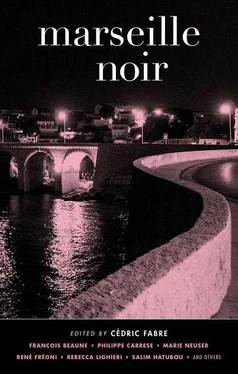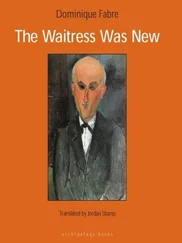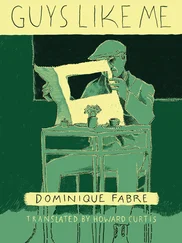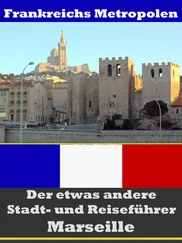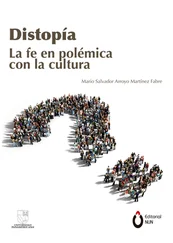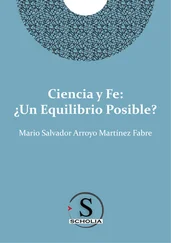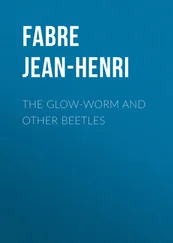Cédric Fabre - Marseille Noir
Здесь есть возможность читать онлайн «Cédric Fabre - Marseille Noir» весь текст электронной книги совершенно бесплатно (целиком полную версию без сокращений). В некоторых случаях можно слушать аудио, скачать через торрент в формате fb2 и присутствует краткое содержание. Год выпуска: 2015, Издательство: akashic books, Жанр: Крутой детектив, на английском языке. Описание произведения, (предисловие) а так же отзывы посетителей доступны на портале библиотеки ЛибКат.
- Название:Marseille Noir
- Автор:
- Издательство:akashic books
- Жанр:
- Год:2015
- ISBN:нет данных
- Рейтинг книги:5 / 5. Голосов: 1
-
Избранное:Добавить в избранное
- Отзывы:
-
Ваша оценка:
- 100
- 1
- 2
- 3
- 4
- 5
Marseille Noir: краткое содержание, описание и аннотация
Предлагаем к чтению аннотацию, описание, краткое содержание или предисловие (зависит от того, что написал сам автор книги «Marseille Noir»). Если вы не нашли необходимую информацию о книге — напишите в комментариях, мы постараемся отыскать её.
Marseille Noir — читать онлайн бесплатно полную книгу (весь текст) целиком
Ниже представлен текст книги, разбитый по страницам. Система сохранения места последней прочитанной страницы, позволяет с удобством читать онлайн бесплатно книгу «Marseille Noir», без необходимости каждый раз заново искать на чём Вы остановились. Поставьте закладку, и сможете в любой момент перейти на страницу, на которой закончили чтение.
Интервал:
Закладка:
A quarter of a century later, that hadn’t changed much. The village of East Endoume still had its own character, the small shopkeepers hadn’t yet seen their shops bought up by national chains, and life there was rather pleasant. The residents of the little dead-end street, however, were not the same. I still lived there, but alone since my mother died; I never got married. On the other hand, the Malatestas had moved away long ago, like most of the other neighbors except for the Fabrizios. Their son René had the same passion for cars he had as a child, and now worked as a sales executive for Renault in La Capelette.
As for me, I had taken over from my father. It was the end of the nineties. Around twenty years earlier, there had been the famous “French connection,” which a movie with Gene Hackman had made famous all over the world. The Endoume mob was active in it, particularly our neighbor François Girard, a.k.a. Francis, a.k.a. Le Blond or Hay-Head. He was still a handsome guy, still a lady-killer, and still loved soccer. But at the very beginning of the eighties, he’d been accused of ordering the assassination of a well-known judge who’d had the unfortunate idea of digging a little too deep into the scandals linked to this French connection, and he got life. They made a movie about that too.
The mob was changing a lot during those years. Besides, at some point there was no longer a single, unified “mob,” just bosses fighting each other. Their methods were more violent than before and summary executions were the rule. The great upheavals at work in society at the time, the sudden rise of laissez-faire economics, the increasingly aggressive sales techniques, the way the workforce was managed—management, as they said, using the American word with a French accent — and the first notions of “flexibility,” “adaptability,” and “downsizing” that would flourish after 2000 were nothing else but the good old system of shameless exploitation of the most vulnerable. A brief parenthesis of four decades marked by concern for working people, roughly from the Liberation to the second election of Mitterrand, had more or less put a brake on the system, but now all that was washing over the deepest levels of society, multiplied a hundredfold and in the most violent ways, in the small, medium, and of course biggest spheres of organized crime. In Marseille, the Corsicans and the Arabs, who at first had more or less agreed to divide the territory (the Corsicans downtown with the slot machines and the old mafia-like system for bars, restaurants, and prostitution; the Arabs in the North End with the flourishing drug business — and prostitution too), were now becoming greedier, and each tried to take over market shares from the territories and businesses of the other, which led to endless gangland killings. You’d think the young generations — mine was already over the hill — had seen too many ultraviolent American movies. I was becoming an old schmuck: my credo was, It was better in the old days. I was barely over thirty, but I was already thinking of taking some sort of early retirement.
When I talked about it around me, I was made to understand that it was not wanted. But I kept at it and was told to talk to Raymond Burr.
Raymond Burr was the actor who played Robert T. Ironside in the 1970s TV series: a paralyzed cop in his wheelchair, surrounded by his sidekicks — a young dark-haired guy, a blond girl, and a black guy, all neatly dressed with well-combed hair. Raymond Burr was also the nickname of a baron of the Damiani branch of the powerful Altieri family, who ran part of the city. Raymond Burr was mostly in charge of the Endoume-Corderie-Catalans sector, going up toward Notre-Dame de la Garde. He was said to be utterly devoid of scruples. Some claimed his nickname came from his temperament, others said it was because he was paralyzed and in a wheelchair, which still others denied. Me, I had no idea: I’d never met him.
They gave me an appointment with him on a Monday at six p.m. in the back room of Chez Fernand, a bar that was then on the corner of rue Perlet, not far from the former movie theater, Bompard, where I had seen Planet of the Apes as a child and a whole lot of noir films — including Jean-Pierre Melville’s Le Deuxième Souffle, with Lino Ventura, which I saw twice. It never stopped playing because of its last scene, which took place nearby, almost at the corner of rue d’Endoume and boulevard de la Corderie, right at the beginning of rue des Lices.
It was only the beginning of June, but it was already very hot. I had walked there and was sweating in my shirtsleeves, with my beige blazer in hand. When I opened the door of the bar, Fernand nodded hello and pointed with his thumb to a door that said Private. I nodded back and went into the bathroom first. Splashed cold water over my face. Then I put on my blazer: I was known in the profession as an elegant, clean-looking man and I wasn’t going to start looking slovenly just because it was ninety-one lousy degrees in the shade. I took a comb out of my inside pocket, grazing the small metal Jesus I’d taken with me as a precaution, and straightened my hair. When the result seemed more or less acceptable, I went back to the bar without looking at Fernand and opened the door marked Private.
Two guys were standing there, cigarettes in their mouths, near an antique chest of drawers that could have belonged to my great-aunt Thérèse, the one who’d lived in the colonies for twenty years and was involved in diamond trafficking in the Congo. A big fan was turning, bringing a few breaths of welcome coolness. I knew the two guys: Milou and Doumé, two inseparable gunmen, one tall and thin, the other short and fat. Don Quixote and Sancho Panza, you might say. More precisely Emile Leccia, a.k.a. Milou, also The Radish (I never knew why), and Dominique Franceschi, a.k.a. Doumé (nobody ever took the trouble of finding a real nickname for him). They looked at me without moving a muscle.
There was also a third person, sitting in the shadow: Raymond Burr, no doubt. I noted the two big metal tires of the wheelchair, which possibly explained the origin of his nickname. He moved forward a little and his face came into the light. He was bald and puffy, dressed completely in black. A character from a Scorsese film.
“So, you want to hang it up?” he said in a weak voice, a little too soft, with what seemed to me a slightly fake Corsican accent.And he shot me an intense, dark look, in complete contradiction to the tone he’d just used — the look of a Dalmatian eagle, the nickname for Josip Skoblar, the greatest shooter ever to play soccer for the Olympique de Marseille.
Except that the guy facing me wasn’t Dalmatian but Sicilian. My eyes widened.
“Ange?”
“Ah. so you do recognize me,” he said slowly, still with the same fake accent. “That’s good.”
It was a statement of fact, both satisfied and surprised. And yet, no, I certainly wouldn’t have recognized him without the look he’d just given me, exactly the same look he’d given me twenty-five years earlier in his living room, just after his sister Josette or whatever her name was had introduced me to forbidden pleasures for the first time. How could I have recognized the slim kid with a high voice who liked to laugh in this fat bald guy slumped in a wheelchair? I was stunned.
“Go see if it’s nice out,” he said curtly to the two thugs who hadn’t taken their eyes off my face or their cigs out of their mouths.
The Radish and Doumé left slowly, with a walk a bit too studied to be natural. I knew them well, one couldn’t make up for the other: both equally violent and simpleminded. Total morons. I turned my head to Ange. His expression had changed: less hard, but not the like the child I’d known. A look that had seen it all, slightly weary, both disillusioned and determined. But he still had his long black eyelashes.
Читать дальшеИнтервал:
Закладка:
Похожие книги на «Marseille Noir»
Представляем Вашему вниманию похожие книги на «Marseille Noir» списком для выбора. Мы отобрали схожую по названию и смыслу литературу в надежде предоставить читателям больше вариантов отыскать новые, интересные, ещё непрочитанные произведения.
Обсуждение, отзывы о книге «Marseille Noir» и просто собственные мнения читателей. Оставьте ваши комментарии, напишите, что Вы думаете о произведении, его смысле или главных героях. Укажите что конкретно понравилось, а что нет, и почему Вы так считаете.
